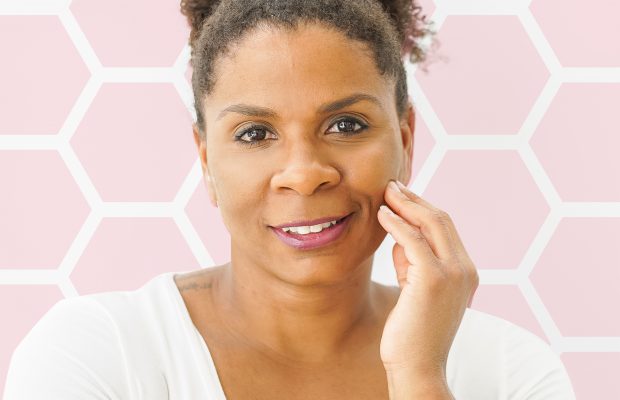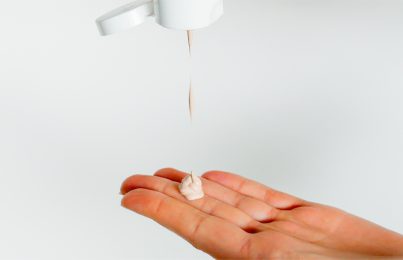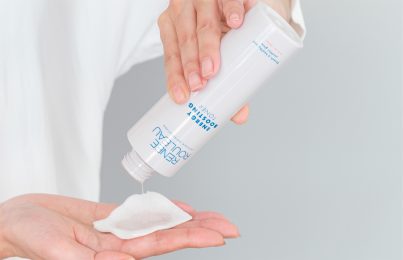Updated 02/08/22. By now, most of us are well-versed in the major habits that cause premature aging. These include things like failing to wear sunscreen, tanning (whether in the sun or in a tanning bed), and certain lifestyle choices (like using drugs, smoking, or drinking excessive amounts of alcohol). You might already avoid these things, but what about all the hidden ways you might be aging your skin without realizing it? Keep reading to see 5 surprising ways you might be undermining your preventative aging routine.
5 Surprising Ways You Might Be Aging Your Skin Faster
1. Yawning
If you stay up past your usual bedtime, chances are you’ll be yawning more, right? Well, when you yawn, it encourages your eyes to water, which creates swelling and puffiness. This repeated swelling weakens the elasticity of the surrounding tissue by stretching it out. This loss of elasticity is like a rubber band that’s been stretched repeatedly; at some point, it doesn’t snap back anymore. Eventually, this can lead to wrinkles and sagging skin.
So, before you stay up past your bedtime to watch one more episode or read one more chapter, consider the consequences. It’s just one more reason to get a good night’s rest!
Aside from preventing unnecessary wear and tear on the skin tissue, I recommend regularly (and gently!) exfoliating the under-eye area and using an eye cream to manage dryness and crepey-ness. Get in the habit of using an eye cream with firming peptides, which will improve the quality of the skin. I personally use the Total Eye Repair Creme. It’s formulated with a variety of peptides, as well as antioxidants, and powerful hydrating ingredients to help soften and plump the skin.
2. Not Wearing Glasses
Any time you squint your eyes from bright light or blurry vision, you’re weakening the elastin fibers around the eyes. This will accelerate the appearance of fine lines and wrinkles. Luckily, the fix for this one is easy—just wear your glasses and/or sunglasses! Don’t put off getting your eye checked to make sure you have the right prescription to stay squint-free.
Another benefit of wearing sunglasses is that they can help shield the delicate skin around the eyes from dangerous sun rays. While sunscreen is still necessary, this extra protection can do a lot to prevent lines and wrinkles from forming over time.
3. Drinking Out of Straws
This preventative aging tip might be surprising, especially if you’re someone who constantly drinks out of a straw. Just like squinting, repeated facial expressions and movements will break down collagen and elastin fibers over time. When drinking out of a straw, you have to purse your lips, causing unnecessary lines and wrinkles around the mouth (similar to smoker’s lines). Drinking from a narrow bottle may also cause this to happen. Instead of using a straw, drink your beverage from a glass, so that your mouth doesn’t have to purse so tightly. Reusable glass is a better choice for the environment than disposable plastic bottles, anyway.
Note: I know that some dentists suggest drinking out of straws to prevent liquids from staining the teeth. This is a choice that you have to make for yourself. Personally, I think it’s far easier to bleach your teeth with an at-home whitening system than it is to get rid of wrinkles once they appear. (After my skin, my teeth are my top priority when it comes to my beauty routine. Check out my head-to-toe beauty routine, including how I keep my teeth in the best shape possible!)
4. Over-Exfoliating
With a surge of at-home exfoliating products hitting the market, I’ve noticed a new trend. People seem to think, if it’s not burning or stinging, it’s not working. Or, similarly, the more exfoliation, the better. Does this sound familiar?
As part of their preventative aging routine, many people are over-exfoliating. This is actually harming their skin, causing damage to the moisture barrier. A damaged moisture barrier can manifest as dryness, dehydration, redness, flakiness, inflammation, and even the possible destruction of healthy cells. This is extremely counterproductive to a preventative aging routine!
Although every type of skin responds differently to exfoliation, the general rule is that it should not be performed daily. If you suspect you’re overdoing it with your exfoliation, or that you have a damaged moisture barrier, cut back on exfoliation and stick to gentle, soothing products instead. (Make sure you know how often you should really be exfoliating.)
5. Not Cleansing in the Morning (I’m Talking to You, Water Rinsers)
Are you someone who thinks it’s unnecessary to wash your face in the morning, especially if you cleansed the night before? Wrong. This is actually one of eight common cleansing mistakes I see people make.
The reason it’s important to wash your face in the morning is that your skin goes into repair mode at night, which means your skin secretes toxins and sebum (oil) while you sleep. The benefit of washing your face with a cleanser in the morning is that you’re getting all of that off, along with your nighttime skincare products. This creates a clean slate, so daytime products (especially sunscreen) can perform their best. You don’t want anything to interfere with proper sun protection.
You have 365 opportunities per year to get your morning skincare routine perfect, and washing your face in the morning is a key step. (On that note, learn how splashing your face with water could be doing more harm than good.)
There you have it. Avoid these five things, and your skin will look and feel its best for years to come. Rest assured that these little changes add up in a big way over the course of a lifetime, and they’re key to creating an effective preventative aging routine.
Next, learn all about the skincare ingredients you should use to prevent blue-light aging!
Celebrity Esthetician & Skincare Expert
As an esthetician trained in cosmetic chemistry, Renée Rouleau has spent 30 years researching skin, educating her audience, and building an award-winning line of products. Her hands-on experience as an esthetician and trusted skin care expert has created a real-world solution — products that are formulated for nine different types of skin so your face will get exactly what it needs to look and feel its best. Trusted by celebrities, editors, bloggers, and skincare obsessives around the globe, her vast real-world knowledge and constant research are why Marie Claire calls her “the most passionate skin practitioner we know.”



